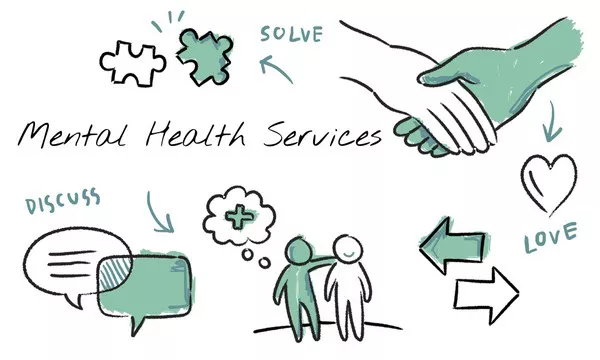Psychosis is a mental health condition characterized by a disconnection from reality, often involving hallucinations, delusions, and impaired thought processes. The onset of psychosis typically occurs in stages, with stage 1 being the initial phase. Understanding the duration and characteristics of stage 1 psychosis is crucial for early intervention, effective treatment, and improved long-term outcomes. This article explores the duration of stage 1 psychosis, its symptoms, and the importance of timely intervention.
What Is Stage 1 Psychosis?
Stage 1 psychosis, also known as the prodromal phase, is the earliest stage of psychotic disorders such as schizophrenia, schizoaffective disorder, or bipolar disorder with psychotic features. During this phase, individuals may experience subtle changes in thoughts, emotions, and behaviors that signal the onset of more severe symptoms. Unlike full-blown psychosis, stage 1 symptoms are often mild and can be easily overlooked or mistaken for other mental health issues, such as depression or anxiety.
Key Characteristics of Stage 1 Psychosis
The prodromal phase is marked by a range of non-specific symptoms that may vary from person to person. Common signs include:
Social Withdrawal: Individuals may begin to isolate themselves from friends, family, and social activities.
Decline in Functioning: A noticeable drop in performance at work, school, or daily responsibilities.
Mood Changes: Increased irritability, anxiety, or depression.
Cognitive Difficulties: Trouble concentrating, memory lapses, or disorganized thinking.
Sleep Disturbances: Insomnia or changes in sleep patterns.
Mild Perceptual Abnormalities: Brief or fleeting hallucinations, such as hearing whispers or seeing shadows.
These symptoms are often subtle and may develop gradually over weeks, months, or even years. Because they are not as severe as those seen in later stages, they can be challenging to identify without careful observation.
How Long Does Stage 1 Psychosis Last?
The duration of stage 1 psychosis varies significantly among individuals. Research suggests that the prodromal phase can last anywhere from a few months to several years. On average, this stage lasts between 6 months and 2 years, but in some cases, it may persist for longer. The length of this phase depends on several factors, including:
Individual Differences: Each person’s experience with psychosis is unique, influenced by genetic, biological, and environmental factors.
Early Intervention: Timely recognition and treatment can shorten the prodromal phase and prevent progression to more severe stages.
Underlying Condition: The specific psychotic disorder and its severity play a role in determining the duration of stage 1.
Factors Influencing the Duration of Stage 1 Psychosis
Several factors can impact how long stage 1 psychosis lasts:
Genetic Predisposition: Individuals with a family history of psychotic disorders may experience a longer prodromal phase.
Stress and Trauma: High levels of stress or exposure to traumatic events can exacerbate symptoms and prolong the initial stage.
Substance Use: The use of drugs or alcohol can worsen symptoms and delay recovery.
Access to Care: Early diagnosis and treatment can significantly reduce the duration of stage 1 psychosis and improve outcomes.
The Importance of Early Intervention
Early intervention during stage 1 psychosis is critical for several reasons. First, it can prevent the condition from progressing to more severe stages, which are often more challenging to treat. Second, timely treatment can improve the individual’s quality of life and reduce the risk of long-term disability. Finally, early intervention can help address co-occurring issues, such as depression or anxiety, which often accompany psychosis.
Recognizing the Signs of Stage 1 Psychosis
Recognizing the signs of stage 1 psychosis can be challenging, as they are often subtle and non-specific. However, certain red flags may indicate the need for further evaluation:
Changes in Behavior: Sudden withdrawal from social activities or a decline in personal hygiene.
Unusual Beliefs: Expressing odd or irrational ideas that seem out of character.
Perceptual Disturbances: Reporting brief hallucinations or sensory experiences that others do not perceive.
Emotional Changes: Unexplained mood swings, irritability, or emotional flatness.
If these symptoms are observed, it is essential to seek professional help promptly. A mental health professional can conduct a thorough assessment and determine whether the individual is in the prodromal phase of psychosis.
Treatment Options for Stage 1 Psychosis
Treatment during stage 1 psychosis focuses on addressing symptoms, preventing progression, and supporting the individual’s overall well-being. Common treatment approaches include:
Psychotherapy: Cognitive-behavioral therapy (CBT) and other forms of counseling can help individuals manage symptoms and develop coping strategies.
Medication: In some cases, antipsychotic medications may be prescribed to alleviate symptoms and prevent further deterioration.
Supportive Services: Case management, vocational support, and educational interventions can help individuals maintain their daily functioning.
Family Education: Educating family members about psychosis can improve their ability to provide support and recognize early warning signs.
The Role of Family and Community Support
Family and community support play a vital role in managing stage 1 psychosis. Loved ones can help by:
Encouraging the individual to seek professional help.
Providing emotional support and understanding.
Creating a stable and low-stress environment.
Monitoring for changes in behavior or symptoms.
Community resources, such as support groups and mental health organizations, can also provide valuable assistance and information.
Conclusion
Stage 1 psychosis, or the prodromal phase, is a critical period that can last from several months to years. Recognizing the signs and seeking early intervention are essential steps in managing the condition and preventing progression to more severe stages. With timely treatment, support from loved ones, and access to appropriate resources, individuals experiencing stage 1 psychosis can achieve better outcomes and maintain a higher quality of life. If you or someone you know is exhibiting signs of stage 1 psychosis, do not hesitate to reach out to a mental health professional for guidance and support. Early action can make a significant difference in the course of the illness.
You Might Be Interested In:

